Title: Printer, Publisher; founding member and board president of Mount Moriah Cemetery
Birthdate: April 2, 1815
Death Date: September 27, 1868
Plot Location: Section 40, between Lot 229-231
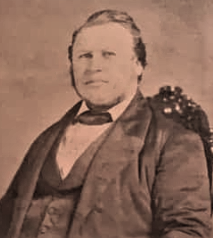
“Eminent both as a printer and a public-spirited citizen” is how Robert’s life has been accurately summarized. His parents had a long lineage in Philadelphia and his grandfather was in the Revolutionary War. Robert went to school until he was 13, becoming an apprentice in the printing business at age 15.
In Business
By the time he was 23 he formed his own printing company near 6th and Sansom Streets with Alexander Baird, who was 11 years older. It was a partnership that lasted 30 years until Robert died. One newspaper obituary said their business started this way: “Mr. Baird worked a single-hand press, and Mr. King was the sole compositor, solicitor of jobs, bookkeeper, foreman, proofreader, and purchaser of supplies.” They went from two small rooms to acquiring the entire building.
It was about 1838 that he married Elizabeth Batten. They had at least nine children over the next 20 years, making their home at 522 Spruce Street in Society Hill, and worshiping at St. Paul’s Episcopal Church on 3rd Street below Walnut.
King & Baird became one of the city’s largest printers, growing to employ over 120 people. They published books, including many in other languages like German, but their biggest success came with printing periodicals, particularly The Legal Intelligencer, founded by local lawyer Henry Wallace in 1843. Still published today, it is the oldest daily law journal in the country and its nationwide reputation may have contributed to the popularity of the phrase, “Philadelphia lawyers.”
over 120 people. They published books, including many in other languages like German, but their biggest success came with printing periodicals, particularly The Legal Intelligencer, founded by local lawyer Henry Wallace in 1843. Still published today, it is the oldest daily law journal in the country and its nationwide reputation may have contributed to the popularity of the phrase, “Philadelphia lawyers.”
In Service
Robert became best known, however, for his investment of time, talent, and treasure in helping others. The Mount Moriah Cemetery Association was incorporated in 1855 and he served for fourteen years as its first president. He lent his name to newspaper advertising for the sale of lots which began in 1854. He was politically proactive, and so much a fan of Henry Clay he named a son after him. Despite encouragement to run for office he deliberately served in other ways. He was a representative to both the 1860 and 1864 Electoral College, casting the vote of his district each time for Abraham Lincoln.
In 1863 during “the rebellion” he was appointed to preside over the Bounty Fund Commission. In that year he filled his quota of recruiting 35,000 men and paying bounties (sign-up bonuses) to more than 20,000, amounting to over $5.8 million in federal money. However, he managed the transacting of this complicated business while holding administrative costs to less than $7,000.
Robert was a member of the Philadelphia Press Club, the Union League, and president of the National Union Club, the Philadelphia Fire Insurance Company and the Soldiers and Sailors Home. Somehow he found time to serve on the board and as president of the Guardians of the Poor, and became involved as Master of his Masonic Lodge and a member for 16 years of the Grand Lodge.
and president of the National Union Club, the Philadelphia Fire Insurance Company and the Soldiers and Sailors Home. Somehow he found time to serve on the board and as president of the Guardians of the Poor, and became involved as Master of his Masonic Lodge and a member for 16 years of the Grand Lodge.
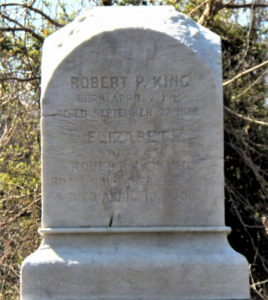 Typhoid fever cut his life short in 1868 and left his widow with six of their children still in the home. Less than three months later their first son, Charles Murray King, died from a fever. He and six other children would join their parents in the family plot at Mount Moriah. Robert’s business partner, Alexander Baird, died at age 94 in 1898, and his plot is in Section 23.
Typhoid fever cut his life short in 1868 and left his widow with six of their children still in the home. Less than three months later their first son, Charles Murray King, died from a fever. He and six other children would join their parents in the family plot at Mount Moriah. Robert’s business partner, Alexander Baird, died at age 94 in 1898, and his plot is in Section 23.
This book imprint shows that Robert’s sons, Robert Jr. and Henry Clay King, continued in the printing business themselves for up to 20 more years.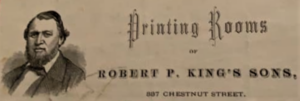
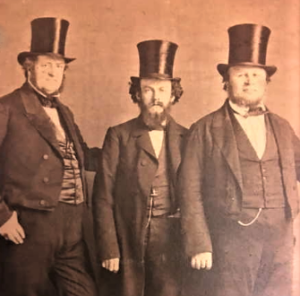
The men at left and center are unknown but one may be Alexander Baird.
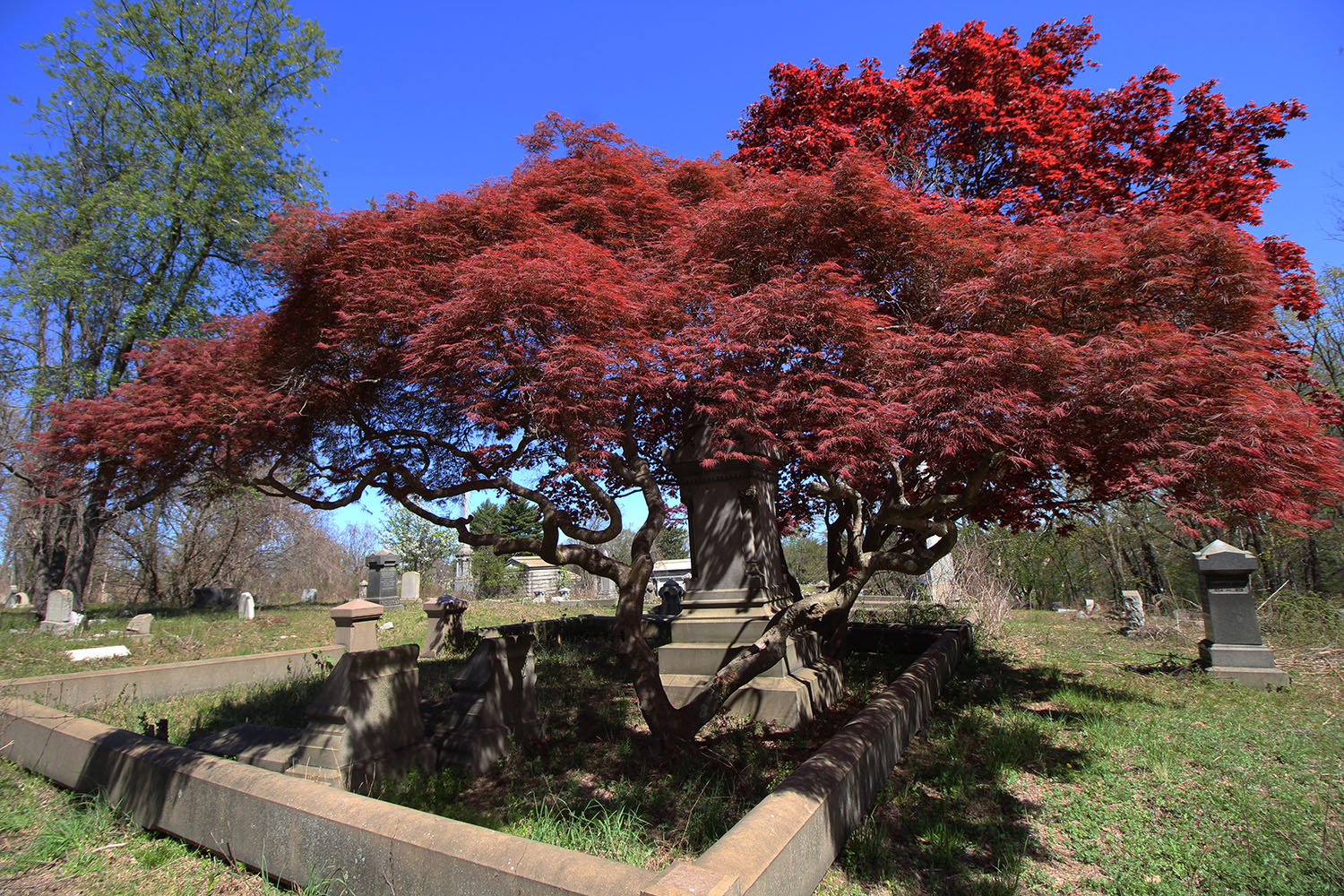
Support the Friends of Mount Moriah
Help us in our mission to restore and maintain the beautiful Mount Moriah Cemetery by donating to our cause or volunteering at one of our clean-up events.

